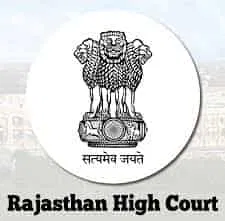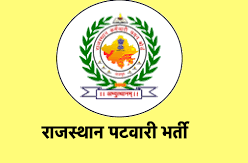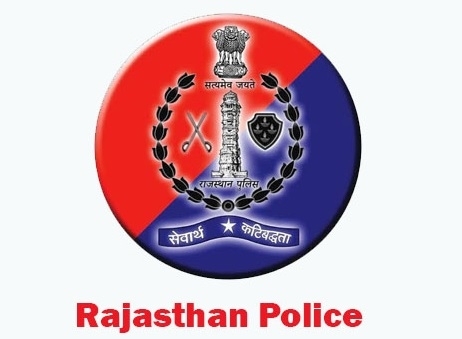RPSC Syllabus 2023 can be easily divided into two parts- Prelims and Mains. Candidates who wish to serve in the Rajasthan Administrative Services (RAS) should have a good knowledge of its syllabus. It is the first stage of exam preparation. To prepare well for the exam, aspirants must acquaint themselves with the latest RPSC Syllabus for both Prelims and Mains and prepare a study plan accordingly.
The RAS syllabus for Prelims has only one paper that is objective in nature. On the other hand, the syllabus for Mains has four theoretical or descriptive papers. Thus, to qualify for the RPSC RAS exam, a candidate needs to divide his/her time so that the preparation can be done for both stages. Later, an interview also forms a part of the examination process after the Mains exam. Aspirants can also download the RPSC Syllabus PDF and keep it safe for future reference.
Table of content
RPSC Syllabus 2023
RPSC Syllabus has two stages of written exam for the selection of candidates: Prelims and Mains, followed by an Interview. The Prelims syllabus consists of General Knowledge and General Science subjects for 200 marks. The Mains syllabus has a descriptive paper and is crucial to determine the result since its marks will be included in preparing the final merit list.
The important subjects for the RAS Mains syllabus are GS 1, 2, 3, and General Hindi and General English. There is no optional paper in the RPSC RAS exam. Aspirants can go through the following post to comprehensively understand the RPSC syllabus. The syllabus for all three stages can be summed up in the following manner.
- Stage 1: Prelims – One Paper – Objective Type – 200 Marks
- Stage 2: Mains – 4 Papers – Theory/Descriptive – 800 Mark
- Stage 3: Interview/Personality Test/Viva-voce – 100 Marks
RPSC Syllabus PDF
Aspirants can download the RPSC syllabus PDF in Hindi and English for all subjects for the Prelims and Mains exam. It is advisable to download and save it on the devices for future purposes so aspirants can access it anytime. This helps aspirants accelerate toward their aim. Candidates just need to click on the direct links provided below to access the RAS Syllabus PDF for Prelims and Mains.
| Prelims Syllabus | Mains Syllabus |
| RAS Pre Syllabus | |
RPSC Syllabus for Prelims
The RAS Prelims syllabus consists of only one paper which consists of questions from General Knowledge and General Science. As the name suggests, the candidates will be asked to answer objective questions on history, polity, science, geography, etc. The primary focus shall be given to Rajasthan GK. Below aspirants can check out the RPSC syllabus for Prelims to understand it in a better way.
RPSC RAS Pre Syllabus- History
The History section of the RPSC syllabus has questions on both Ancient & Modern History to analyze the candidates’ knowledge. The candidates ought to attain proficiency for achieving the desired results. The details of the RAS Prelims Syllabus for History are mentioned herewith.
|
RAS Pre Syllabus for History |
|
|
History, Art, Culture, Literature, Tradition & Heritage of Rajasthan |
Pre-historical sites of Rajasthan Political and Cultural achievements of prominent rulers of major dynasties The emergence of Modern Rajasthan Leading Personalities of Rajasthan Social Life in Rajasthan Religious Life: Religious Communities, etc. |
|
Ancient & Medieval Period |
Cultural Foundations of India Art and Architecture in Ancient India Development of Art & Architecture, Paintings, and Music during the medieval period, etc. |
|
Modern Period (from early 19th century to 1964) |
Evolution of Modern India & Emergence of Nationalism Post-independence Nation Building Freedom Struggle & Indian National Movement |
RAS Pre Syllabus for Geography
RPSC RAS syllabus for Geography shall be based on the Geography of India, the World, and Rajasthan. Each of the papers has a different syllabus for them. The important topics include Rivers and Lakes, Mountains, Crops, Land, Population, Minerals, Resources, etc.
| RAS Pre Syllabus for Geography | |
|
World Geography |
Major Landforms-Mountains, Plateaus, Plains & Deserts Major Rivers & Lakes Types of Agriculture Major Industrial Regions. Environmental Issues |
|
Geography of Rajasthan |
Major Landforms- Mountains, Plateaus Plains Mechanism of Monsoon & Rainfall Distribution Major Rivers & Lakes Major Crops- Wheat, Rice, Cotton, Sugarcane, Tea & Coffee Major Minerals- Iron ore, Manganese, Bauxite, Mica Power Resources- Conventional & Non-Conventional Major Industrial Regions. National Highways & Major Transport Corridors |
|
Geography of India |
Major physiographic regions and their characteristics Climatic characteristics Natural Vegetation & Soil Major Irrigation Projects & Water Population-Growth, Density, Literacy, Sex-ratio & Major Tribes Minerals- Metallic & Non-Metallic |
RAS Syllabus for Polity
Here are the important topics for the subject of Indian Polity that form an important part of the RPSC Syllabus for Prelims.
|
RAS Prelims Syllabus for Polity |
|
|
Indian Constitution, Political System & Governance |
Indian Constitution: Philosophical Postulates Indian Political System Election Commission of India, Comptroller and Auditor General NITI Aayog, Central Vigilance Commission, Lokpal, Central Information Commission National Human Rights Commission Federalism, Democratic Politics in India Coalition Governments, National Integration |
|
Political and Administrative System of Rajasthan. |
State Political System Administrative System Institutions Public Policy & Rights |
RAS Syllabus for Economics
|
RAS Prelims Syllabus for Economics |
|
|
Economic Concepts and the Indian Economy |
Basic Concepts of Economics Economic Development & Planning Human Resource and Economic Development Social Justice and Empowerment |
|
Economy of Rajasthan |
A macro overview of the Economy. Major Agricultural, Industrial, and Service Sector Issues. Growth, Development, and Planning. Infrastructure & Resources. Major Development Projects |
RAS Syllabus for Science & Technology
| RAS Prelims Syllabus for Science & Technology | |
|
Science & Technology |
Basics of Everyday Science Computers Information and Communication Technology. Defense Technology, Space Technology, and Satellites. Nanotechnology, Biotechnology, and Genetic Engineering Food and Nutrition, Blood Groups, and Rh Factor Health care; Infectious, Non-Infectious, and Zoonotic diseases Environmental and Ecological Changes and Their Impact Biodiversity, Conservation of Natural Resources and Sustainable Development |
RAS Syllabus for Current Affairs
|
RAS Pre Syllabus for Current Affairs |
|
|
Current Affairs |
Major Current Events and Issues in Rajasthan India and International Importance Persons, Places, and Institutions in News Games and Sports-related activities |
RPSC Syllabus for RAS Mains
The RPSC syllabus for Mains consists of four descriptive papers. There are three General Studies papers, and one is General Hindi and General English. To qualify for the Mains exam, it is important to study every topic in depth as the syllabus is vast and descriptive. The subjects in the RPSC Mains syllabus shall be History, Sociology, Administrative Ethics, Polity, Geography, etc.
RPSC RAS Mains Syllabus for Paper 1
The RPSC Mains syllabus for Paper 1 includes 3 units- History, Economics & Sociology, Management, Accounting, and Auditing. These 3 units are also divided into subcategories such as – History, Art, Culture, Literature, Indian History & Culture, and History of the Modern World (up to 1950 AD), while Economics consists of the Indian Economy, World Economy & Economy of Rajasthan.
|
RPSC RAS Mains Syllabus for Paper 1 |
|
| History |
History, Art, Culture, Literature, Tradition, and Heritage of Indian History & Culture History of Modern World (up to 1950AD) |
| Economics |
Indian Economy World Economy Economy of Rajasthan |
|
Sociology, Management, Accounting, Auditing |
Sociology Management Accounting & Auditing |
RPSC Mains Syllabus for Paper 2
The RAS Mains syllabus for Paper 2 also consists of 3 units: Administrative Ethics, General Science & Technology, and Earth Science (Geography & Geology). Each of the units has a different syllabus. All these units also consist of various parts as well. Therefore, candidates must have a broader understanding of all the subjects.
RPSC Syllabus for Paper 3- Mains
RPSC RAS Mains syllabus for Paper 3 shall consist of questions on the Indian Political System, World Politics and Current Affairs, Concepts, Issues, and Dynamics of Public Administration and Management, and Sports and Yoga, Behavior, and Law. The RAS mains syllabus will also test the knowledge of Sports and Yoga, Behavior, and Law system.
RAS Mains Syllabus for Paper 4 (General Hindi and General English)
RPSC Syllabus for RAS General Hindi and English section focuses primarily on three crucial skills of candidates: grammar, vocabulary, and reading comprehension. A candidate with a strong grasp of Grammar and Vocabulary in Hindi and English will easily pass this section.
|
RAS Mains Syllabus for Paper 4 (General English) |
||
|
Grammar & Usage |
Comprehension, Translation & Precis Writing |
Composition & Letter Writing |
|
Correction of Sentences Articles & Determiners Prepositions Tenses & Sequence of Tenses Active & Passive Narration- Direct & Indirect Synonyms & Antonyms Phrasal Verbs & Idioms Word Substitute Words are often Confused or Misused |
Comprehension of an Unseen Passage Translation of five sentences from Hindi to English. Precis Writing |
Paragraph Writing Letter Writing or Report Writing |
RPSC RAS Mains Syllabus for Paper 4 (General Hindi) – The General Hindi section includes important topics such as संधि / समास, उपसर्ग और प्रत्यय, रस / छन्द / अलंकार, मुहावरों और लोकोक्तियाँ/ कहावते, etc.
RPSC Syllabus 2023: Weightage
After checking the RPSC Syllabus, aspirants must also look at the exam pattern. The RAS exam pattern is divided into three stages: Prelims, Mains, and Interviews, and released by RPSC. RAS Pre includes one subject i.e General Knowledge, of 200 marks, whereas the Mains exam shall have four papers of 200 marks each. Once the candidates crack the Mains exam, they will call for the interview process, which is the last round of selection.
How to Prepare RPSC Syllabus?
As the RAS exam will cover a wide range of topics, candidates should start preparing as soon as possible. It may seem rigorous and challenging for candidates to cover the RPSC Syllabus but if followed a proper schedule, it will be easier to crack. Candidates can also follow the following useful tips and include them in their study plans.
- Candidates must review the curriculum and RAS exam pattern before starting their exam preparation.
- Candidates ought to map out a course that concentrates more on challenging issues.
- Candidates need to build a good study plan and pick up reading.
- Taking notes is also advised for subjects that need constant revision.
- Check the RPSC Question Papers from the previous years to discover which questions are often asked.
- It’s best to start with the basics before moving on to more complicated subjects.
- To better understand the exam and the RPSC syllabus, candidates must also take mock tests.
Best Books for RPSC Syllabus
After checking the RAS Syllabus aspirants must collect the best study material available for the exam. Aspirants preparing for the exam must know the best RPSC books to outperform the competitors in the exam.
| Subjects | Book |
| Modern History of India | A Brief History of Modern India Spectrum Publication |
| Ancient History | Old NCERT of Ancient History |
| World History | Adhunik Vishwa ka Itihas by N.C Bishnoi |
| Medieval History | NCERT and History of Medieval India by Satish Chandra |

 Install
App
Install
App











